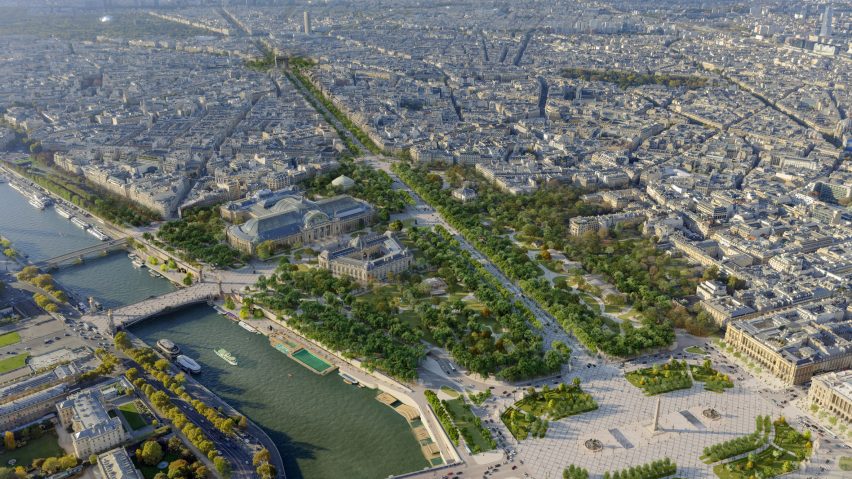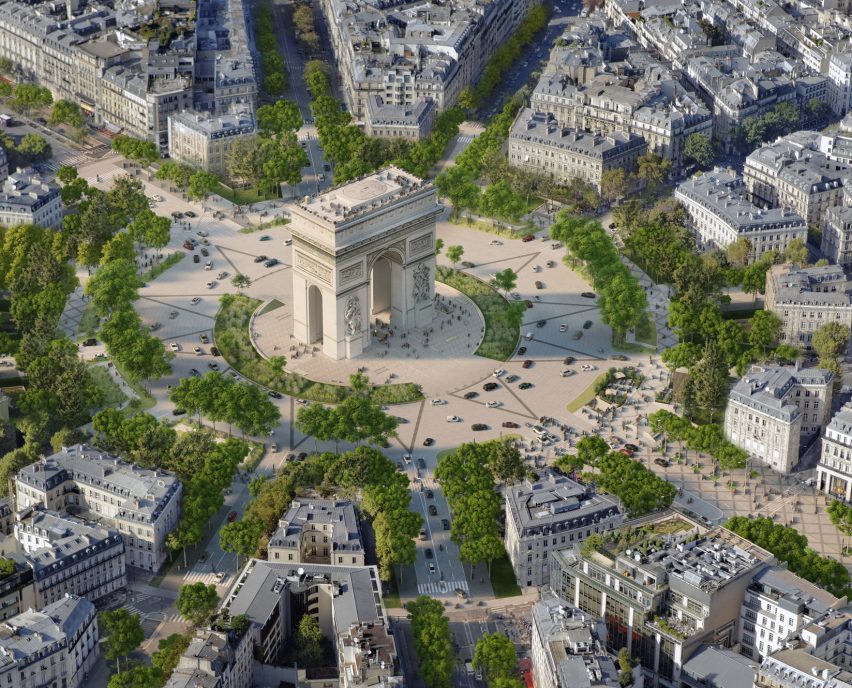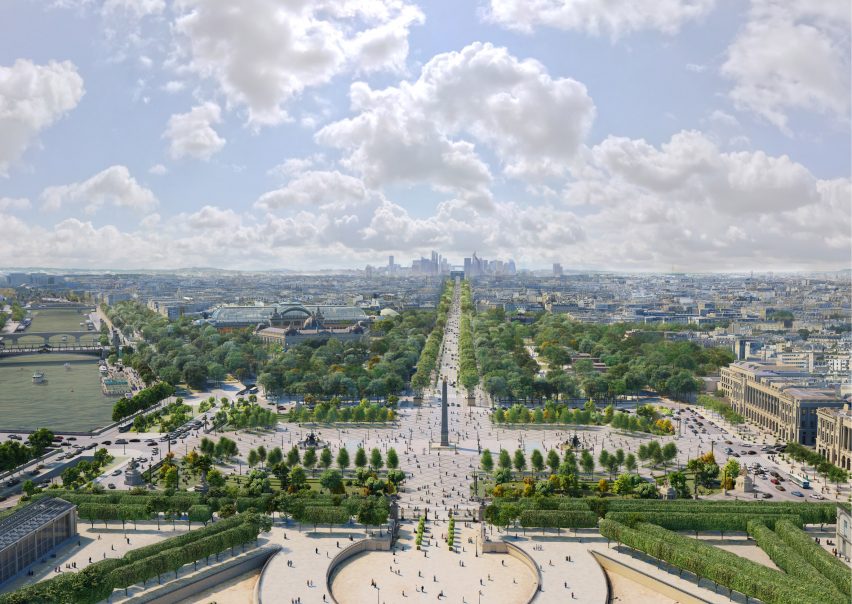
Champs-Élysées avenue in Paris to become "an extraordinary garden"
Plans to convert the iconic Champs-Élysées avenue in Paris into a pedestrian-friendly public space have been announced by the capital's mayor Anne Hidalgo.
Revealed in an interview on Sunday with Le Journal du Dimanche, Hidalgo said that the makeover will transform the entire thoroughfare into "an extraordinary garden" by 2030.
Using a proposal drawn up by French studio PCA-Stream, this will be achieved by closing off half of the avenue's eight-lane highway to traffic and introducing pockets of greenery.
The aim is to improve air quality across the 1.9-kilometre-long road and make it a more sustainable and desirable public space.
Plans respond to tourism and pollution
Connecting the Arc de Triomphe with the Place de la Concorde, the Champs-Élysées is the most famous avenue in Paris. It was planned by André Le Nôtre in 1667 as an extension of the gardens at the Tuileries Palace, but is now one of the world's most famous shopping streets.

In recent years, however, the district has become overrun by tourism and cars. According to PCA-Stream, an average of 3,000 vehicles pass through the artery every hour, resulting in nitrogen dioxide levels that are double the limit set by the World Health Organisation.
This has deterred many locals from visiting the area and prompted campaigns calling for its redesign.
The avenue "deserves to shine again"
Leading the campaigns since 2018 is the Champs-Élysées committee, a local group that exists to develop the area and worked with PCA-Stream on the proposal.
The group welcomed the announcement, stating that the "mythical avenue has lost its splendour over the past thirty years" and that its renovation will be "one of the flagship urban projects of this decade".
On Twitter, PCA-Stream celebrated the news, adding that "the Champs-Élysées district deserves to shine again as a demonstrator of a new approach to the city focused on nature and well-being, a more sustainable, inclusive and desirable city".
"Planted living rooms" among plans
Alongside restricting traffic across the avenue, PCA-Streams' proposal will see the introduction of low‐noise road surfacing, food kiosks, rows of trees and "planted living rooms" for use as relaxation and meeting spaces.

The Place de la Concorde square will also be redesigned, with its connections to the Tuileries Garden and the existing Champs‐Élysées Gardens reinstated.
While helping to reduce air pollution and enliven the avenue, the studio hopes the overhaul will also encourage locals to spend more time in the district.
Project will be partly completed for Olympics
The bulk of the Champs-Élysées overhaul is projected for completion in 2030, but the redesign of Place de la Concorde will be completed earlier, in time for the 2024 Summer Olympics.
The masterplan for the 2024 Olympic games is being overseen by architects Populous and engineers Egis, and will feature 38 Olympic and Paralympic venues dispersed across the city.
Gustafson Porter + Bowman is currently redesigning the approaches to the Eiffel Tower in time for the event to address crowding issues at the Parisian landmark, while the Clamart stadium is undergoing a facelift and will be covered by foliage in a bid for it to be used as a venue.
Plans follow other urban greenery schemes in Europe
Alongside the plans for the Champs-Élysées and Eiffel Tower, Hidalgo has also recently confirmed plans for four "urban forests" on historic sites in the city.
This includes the Place de l'Hotel de Ville and the Gare de Lyon, and is an attempt to improve the air quality and address climate change.
Another European city turning its streets green is Barcelona, which recently revealed plans to convert a third of its roads in its Eixample district into car-free public spaces to curb excessive pollution in the city.
Visuals are courtesy of PCA-Stream.